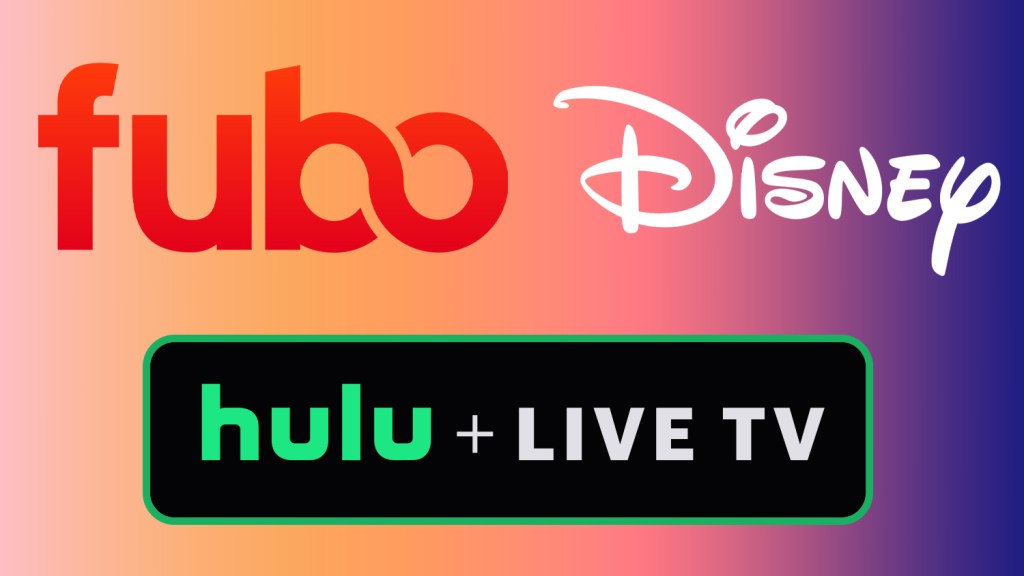In a landmark move reshaping the streaming landscape, Disney has officially closed its acquisition of a majority stake in Fubo. This strategic maneuver combines Fubo with Hulu + Live TV, forging a formidable No. 6 pay-TV operator in the U.S. With a combined subscriber base nearing 6 million in North America, this merger intensifies the competition with industry giant YouTube TV, which boasts close to 10 million subscribers.
This acquisition not only consolidates Disney’s position in the streaming market but also promises consumers a broader range of options and potentially more competitive pricing. As traditional pay-TV models decline, the rise of internet-delivered bundles is changing how viewers access their favorite content. This article delves into the details of the acquisition, its implications for the streaming industry, and what it means for consumers.
Disney and Fubo: A Merger Overview
The deal, finalized recently, sees Disney taking a 70% controlling stake in the merged entity, while Fubo shareholders retain the remaining equity. Fubo’s current CEO, David Gandler, will lead the combined operations of Fubo and Hulu + Live TV. Both services will continue to operate under their respective brands, ensuring a seamless transition for existing subscribers.
According to the official announcement, the merger aims to leverage synergies in programming, advertising, and marketing. By offering more flexible programming packages, the new entity anticipates lower carriage fees and optimized ad sales, ultimately driving profitability and sustainable growth. Disney has also committed a $145 million term loan to support Fubo during this transition.
“Together with Disney, we’re creating a more flexible streaming ecosystem that gives consumers greater choice, while driving profitability and sustainable growth,” said Gandler in a statement.
Challenging YouTube TV’s Dominance
YouTube TV has seen substantial growth, especially through bundling with NFL Sunday Ticket. With Disney’s combined streaming services, the competitive landscape is set to change. While traditional cable providers like Charter and Comcast still hold a significant market share, their subscriber numbers are dwindling as internet-based alternatives gain popularity.
The merger positions Disney as a stronger contender in the live TV streaming arena, offering a diverse portfolio of content and a robust subscriber base. The ability to bundle various Disney-owned channels and content libraries gives them a unique advantage in attracting and retaining subscribers. This intensified competition could lead to more innovative offerings and competitive pricing, benefiting consumers in the long run.
The Venu Sports Settlement
The acquisition stems from a settlement of Fubo’s 2024 antitrust lawsuit against Disney, Fox Corp., and Warner Bros. Discovery over the now-defunct Venu Sports joint venture. Venu Sports, designed as a sports-focused streaming service, faced legal challenges that ultimately led to its abandonment. The lawsuit alleged monopolistic practices by the JV partners, which squeezed Fubo as they planned to launch a competing service.
Despite Venu’s failure, its underlying technology has been repurposed to enhance Fox Corp.’s new streaming service, Fox One. This highlights the ongoing evolution and adaptation within the streaming industry, as companies seek to innovate and capture market share through various strategic initiatives.
Fubo Shares Surge
News of the acquisition has had a positive impact on Fubo’s stock value. Shares have tripled in 2025 following the initial announcement in January, and they further increased by 20% in pre-market trading upon the deal’s closure. This surge reflects investor confidence in the strategic benefits of the merger and the potential for long-term growth.
Gandler emphasized the company’s commitment to rewarding its retail shareholders who have supported Fubo’s mission from its inception. The merger is expected to provide the scale, stability, and strategic clarity needed to create lasting value for both consumers and shareholders.
Leadership Insights
Andy Bird, Chairman of the Board of Directors, expressed enthusiasm about the merger, stating, “Today’s announcement brings together two industry-leading brands and a compelling set of resources that uniquely position us to meet the evolving needs of today’s consumer.”
Bird’s statement underscores the industry’s recognition of the merger’s significance and its potential to reshape the streaming landscape. Edgar Bronfman Jr., who served as Fubo’s chairman for several years before the acquisition, also played a crucial role in guiding the company through its growth phase. Fubo, initially founded in 2015 as a soccer-focused pay-TV outlet, has evolved into a comprehensive streaming platform with a diverse range of content.
The Future of Streaming
The completion of Disney’s acquisition of Fubo marks a significant shift in the streaming industry. By merging Fubo with Hulu + Live TV, Disney is creating a more competitive alternative to YouTube TV, offering consumers more choices and potentially driving innovation in pricing and content. The move reflects the ongoing trend of consolidation and strategic alliances in the streaming market, as companies strive to gain scale and enhance their offerings.
As the streaming landscape continues to evolve, consumers can expect to see more dynamic bundles, personalized content recommendations, and competitive pricing. The success of this merger will depend on the ability of Disney and Fubo to integrate their services effectively, leverage synergies, and deliver a seamless user experience. Ultimately, the intensified competition will benefit consumers, providing them with greater access to high-quality content at competitive prices.

Leave a Reply